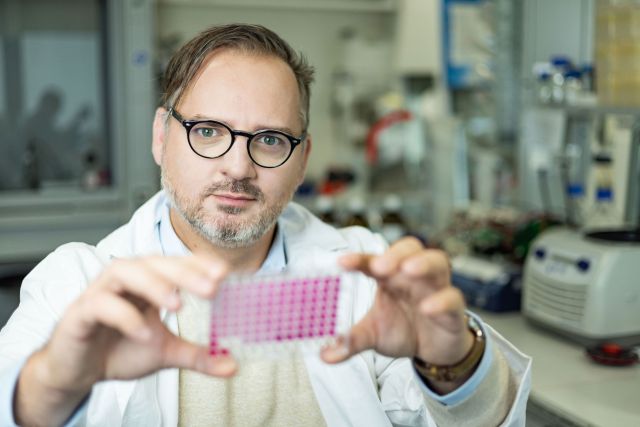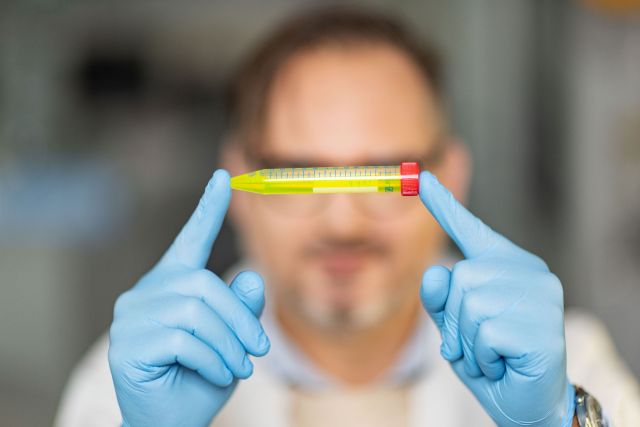Principal Investigator
:
Dr Tomasz Kantyka
Jagiellonian University
Panel: NZ1
Funding scheme
: GRIEG
announced on
17 czerwca 2019 r.
Rheumatoid arthritis (RA) is an autoimmune disease characterised by joint inflammation, which leads to limited functionality and disability. Several studies indicate citrullination, an enzymatic modification of proteins catalysed by the peptidyl arginine deiminase (PAD) family, as a significant factor in the development of RA. Unfortunately, fundamental aspects related to citrullination and PAD enzyme biology remain unclear. Our project aims to describe the biological mechanisms of PAD activation, using biochemical techniques, cell lines and analysing samples from RA patients.
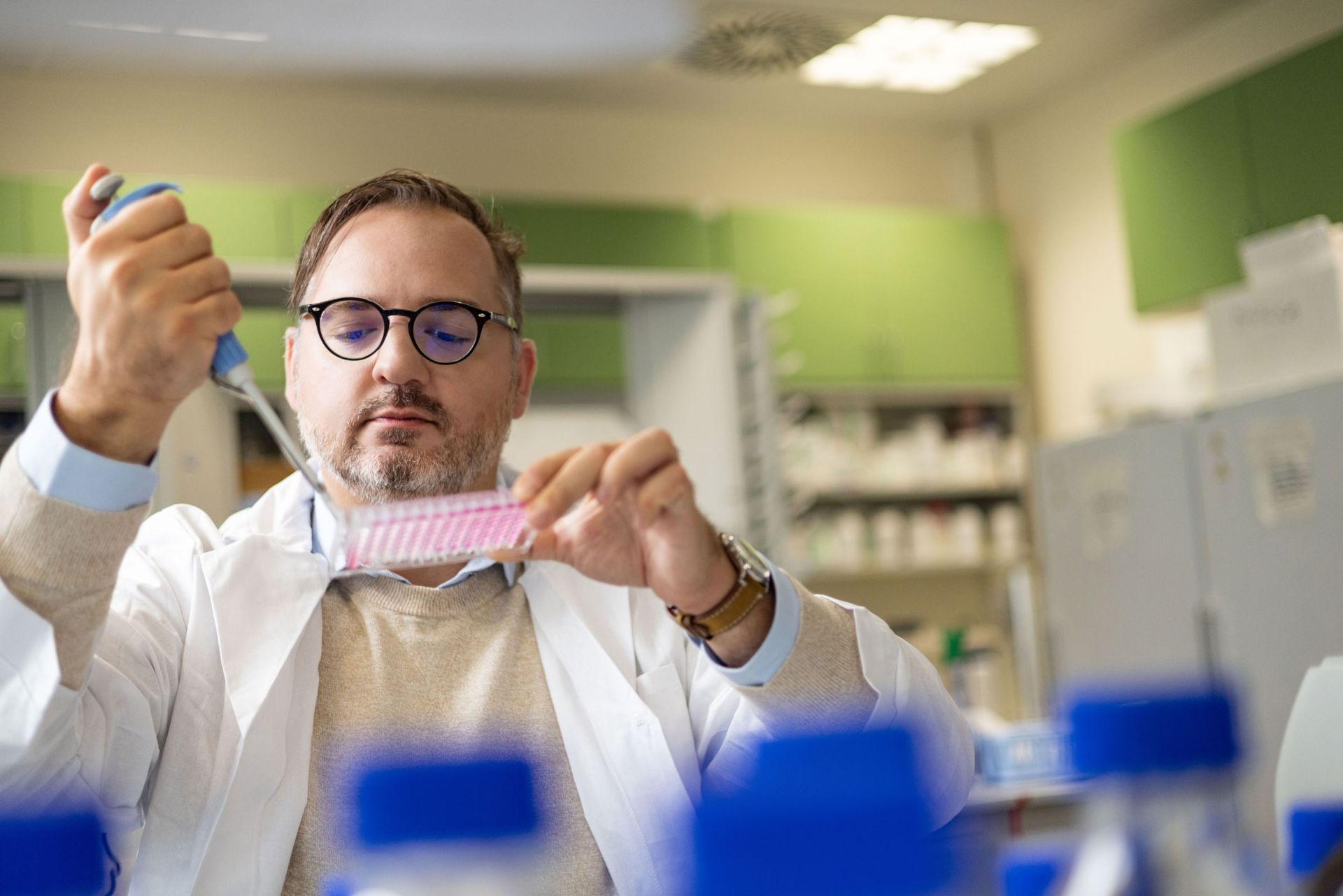 Dr Tomasz Kantyka, photo by Michał Łepecki
Dr Tomasz Kantyka, photo by Michał Łepecki
A characteristic feature of RA is the influx of immune cells into the joints, including neutrophils and macrophages, accompanied by lymphocytes. Neutrophils drive the inflammatory process and tissue destruction, while lymphocytes recognise newly-formed citrullinated proteins and produce antibodies attacking the patient's own proteins. A significant group of these antibodies are anti-citrullinated protein antibodies (ACPAs), targeting citrullinated proteins such as those building cartilage, metabolic enzymes and nuclear proteins. ACPAs can be detected even before clinical symptoms appear, and their levels are associated with joint destruction progression.
Citrullination is a modification of proteins where the positively charged arginine chain is modified to neutral citrulline, a critical step for ACPA formation as these modified sequences often serve as neoepitopes, attacked by the immune system. The group of enzymes catalysing citrullination (PAD) is essential for regulating the inflammatory state induced by neutrophil presence.
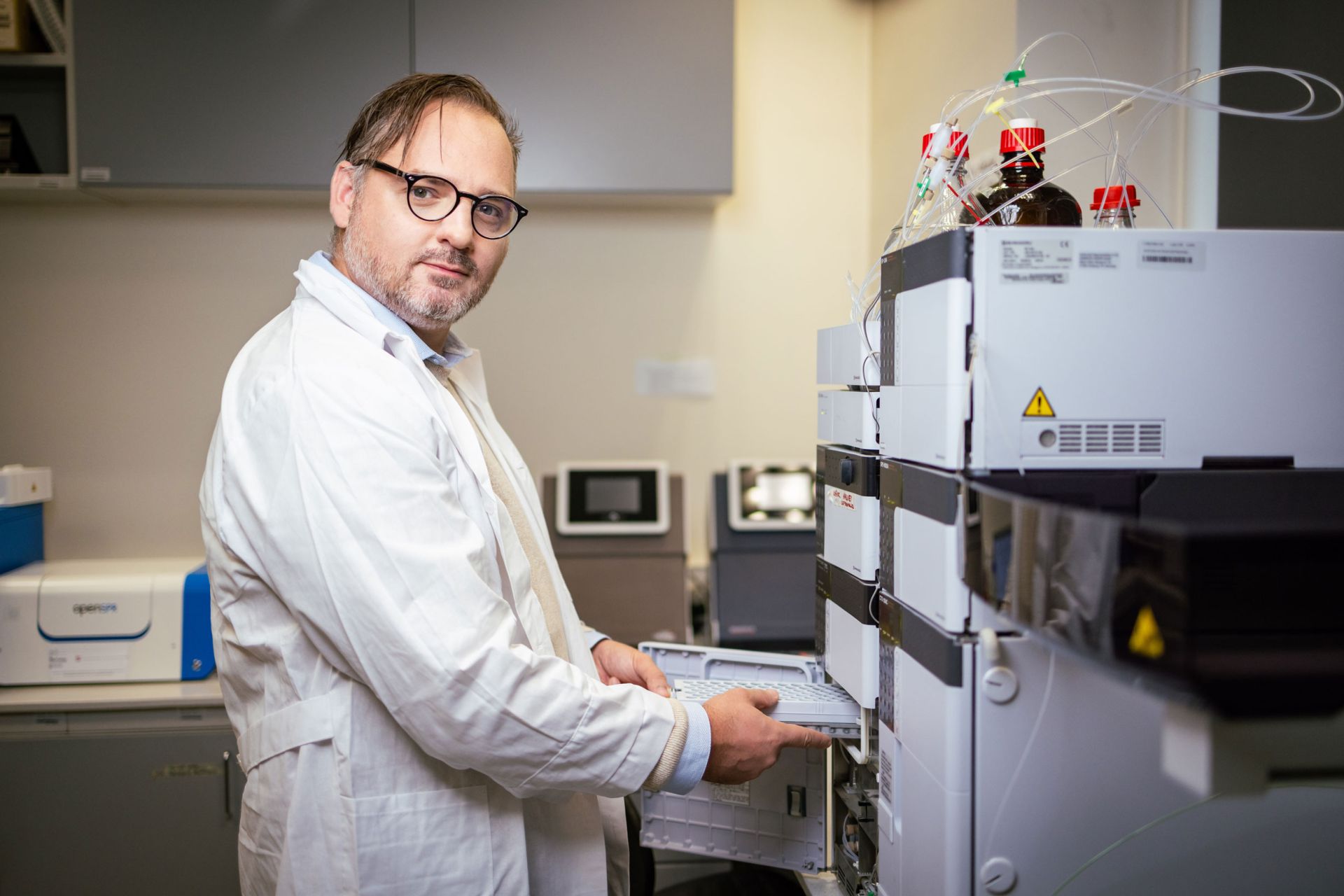 Dr Tomasz Kantyka, photo by Michał Łepecki
The main regulators of PAD activity are calcium ions. Calcium binding leads to enzyme activation in the "calcium switch" mechanism, involving structural changes enabling catalytic machinery activation. However, calcium concentrations in these studies often exceed physiological levels, suggesting the involvement of additional activators either replacing calcium or reducing calcium concentration requirements for enzyme activation. Breakthrough results from our project indicate the activation of PAD4 by natural molecules from the glycosaminoglycans (GAG) group. These substances activate PAD4 at calcium ion concentrations similar to physiological levels, explaining their potential in vivo activation. These results have been confirmed using various techniques, including enzymatic activity analysis, direct determination of GAG-PAD4 interaction using microcalorimetry MST and specific binding determination using surface plasmon resonance (SPR). These findings confirm high-affinity GAG binding and suggest a new molecular organisation of PAD4 responsible for increased enzyme activity. In parallel in vitro studies have demonstrated PAD4 binding to GAG-producing cell surfaces, and analysis of clinical samples from patients in collaboration with our Norwegian partner indicates a correlation between elevated GAG levels in serum and earlier disease development.
Dr Tomasz Kantyka, photo by Michał Łepecki
The main regulators of PAD activity are calcium ions. Calcium binding leads to enzyme activation in the "calcium switch" mechanism, involving structural changes enabling catalytic machinery activation. However, calcium concentrations in these studies often exceed physiological levels, suggesting the involvement of additional activators either replacing calcium or reducing calcium concentration requirements for enzyme activation. Breakthrough results from our project indicate the activation of PAD4 by natural molecules from the glycosaminoglycans (GAG) group. These substances activate PAD4 at calcium ion concentrations similar to physiological levels, explaining their potential in vivo activation. These results have been confirmed using various techniques, including enzymatic activity analysis, direct determination of GAG-PAD4 interaction using microcalorimetry MST and specific binding determination using surface plasmon resonance (SPR). These findings confirm high-affinity GAG binding and suggest a new molecular organisation of PAD4 responsible for increased enzyme activity. In parallel in vitro studies have demonstrated PAD4 binding to GAG-producing cell surfaces, and analysis of clinical samples from patients in collaboration with our Norwegian partner indicates a correlation between elevated GAG levels in serum and earlier disease development.
Describing new PAD4 activation mechanisms has the potential for clinical interpretation, and the results of our basic research may lead to the development of better RA therapies in the future.
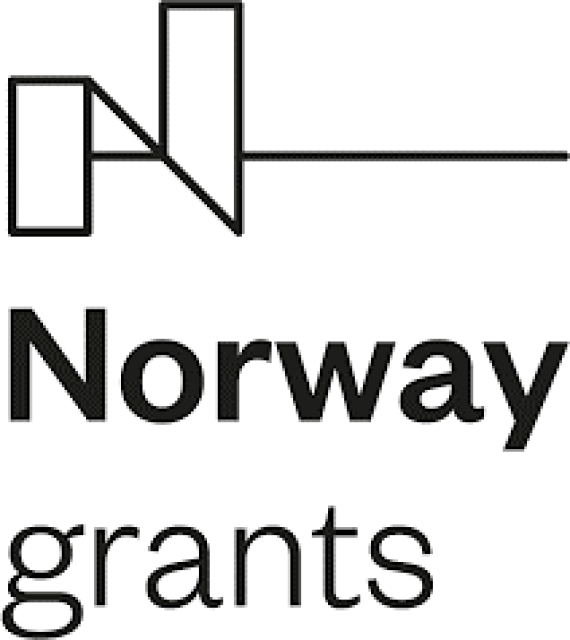
Project title: Novel mechanisms of PAD activity regulation. Substrate specificity and activation of peptidyl arginine deiminase in the context of rheumatoid arthritis
Dr Tomasz Kantyka
Tomasz Kantyka defended his PhD at Jagiellonian University in 2010. His international experience includes research stays in Germany at the Clinic of Dermatology, Christian Albrechts University in Kiel, a 4-month collaboration with Institute of Clinical Microbiology at Friedrich Schiller University in Jena and USA with a short stay at Department of Biochemistry and Molecular Biology, University of Georgia, Athens, GA, USA. He spent his postdoc in Bergen, Norway, at the Clinical Department of the Bergen University Hospital. Currently he leads a Research Group at the Malopolska Centre of Biotechnology, Jagiellonian University, where he continues his research. Currently his main research topic is the regulation of PAD4 activity by non-protein cofactors. He is a co-author of 39 research papers and has received several grants from the Ministry of Higher Education, NCN and Norway Grants.
